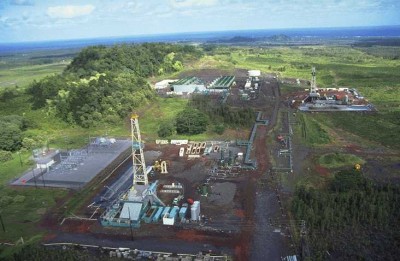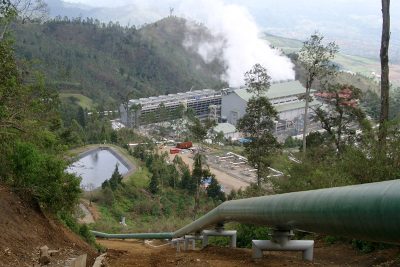Indian companies are warming up to geothermal power
Indian private companies are starting to warm up to geothermal power in the country, as the government readies a policy on geothermal energy. But companies are expecting the government's help on technology and exploration.
Reported from India, private companies in the country are betting high on geothermal power with the government readying a policy on geothermal energy, but are expecting help on technology and exploration.
“Currently, geothermal electricity generation is there in 24 countries and the worldwide installed capacity is 10,715 Mw. In India, companies planning to use heat from the earth’s inner layers to produce electricity include Tata Power, Thermax and GeoSyndicate.
“We see good potential in areas near Leh and Godavari. The success of a project will depend on its promoter; you need a heavy pocket to invest on this, as the initial investment cost is much higher. Government should come out with a clear policy framework on the allotment of acreages and control over heat,” said Banmali Agrawala, executive director of strategy and business development, Tata Power.
The company has signed a memorandum of understanding with the Gujarat government to set up a geothermal power plant in that state. Tata Power already holds stake in Geodynamics, operating an Australian basin with an enhanced geo-thermal system. It has also got a licence to develop a 240 Mw unit in Indonesia.
According to experts, depending on the geology and the location, the cost will range be $3-4 million per Mw. “Geothermal power is 100 per cent renewable and carbon-free. Thermax is on the verge of signing an agreement with the Maharashtra government for developing one block,” said M S Unnikrishnan, managing director of Pune-based Thermax.
The firm has entered into a joint venture with Iceland-based Reykjavik Geothermal for technological assistance in developing such blocks.
“The industry wants support from the government on exploration funding and technological assistance,” Unnikrishnan added. He says private players are enthusiastic about this form of energy due to the availability of power round the clock and due to its independence from fuels.
The power rate from geothermal plants is comparable to a thermal coal one, in the range of Rs 2 to Rs 3 per unit, while power from solar units are being sold at Rs 13-15 per unit, wind energy at Rs 3-5 per unit and biomass at Rs 4-5 a unit.
Government policy
The government will come up with a policy on geothermal energy soon. “We have formed a working group for a national policy. It met once in December and another meeting may happen soon. But an exact timeframe cannot be given, as so many players are involved. However, anybody can go ahead with their projects, based on the present research and development policy,” said A R Shukla, advisor, ministry of new and renewable energy.
The group includes representatives from some states. It will decide on how development blocks may be awarded to different players.
However, experts are also a bit sceptical about the capacity of the geo-thermal sector in India. They say the highest potential is in countries in the ‘ring of fire’, like Indonesia, Philippines and Australia.
“India is not known for its geo-thermal reserves. Apart from the Puga area in Ladakh, there is no other region which has enhanced geothermal capability. Moreover, for a long time, the country has not done an authentic study on this,” said Laboni Ray, a senior scientist from the National Geophysical Research Institute.
“Even if somebody gets into the generation business, it will take a long time for them to make it profitable,” added Rupesh Sankhe, research analyst, Angel Broking.”
Source: Business Standard (India)

















